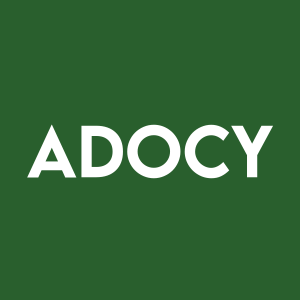ADOCIA Announces First Cell Therapy Preclinical Proof of Concept of AdoShell® Islets for the Treatment of Type 1 Diabetes
- AdoShell Islets regulated glycemic control in immunocompetent diabetic animals in a 132-day trial without the use of insulin or immunosuppression.
-
These results will be presented at the upcoming cell therapy session of the PODD 2022 conference held in
Boston in October. - A new series of diabetic rats, being treated with AdoShell Islets, confirm these promising results with 80 days normoglycemia.
- AdoShell Islets will be evaluated in diabetic pigs in the 4th quarter of 2022.
"Adocia’s results are remarkable, having successfully performed the first islet transplantation without the use of immunosuppressants in immunocompetent animals. We are delighted to be actively involved in these unprecedent results,” said Dr. Karim Bouzakri, Director of CEED (
AdoShell Islets is an immuno-protective synthetic biomaterial containing islets of Langerhans. After implantation in diabetic animals, the islets encapsulated in AdoShell secrete insulin in response to blood glucose levels. The physical barrier formed by the AdoShell biomaterial allows the implanted cells to be invisible to the host's immune system while allowing the necessary physiological exchanges to occur for the survival and function of the islets.
This study consisted of implanting islets from allogeneic rats (Wistar) - encapsulated in AdoShell – into immunocompetent diabetic rats (Lewis). The insulin secreted by the transplanted islets was measured for 132 days and no slowing of secretion was observed during the duration of the study.
At the end of the study the graft was removed, which resulted in an observable drop of insulin secretion and rise in blood sugar levels, the animals rapidly returned to its diabetic state. At the same time, the animals in the control group (diabetic rats that did not receive AdoShell Islets) were unable to control their blood sugar levels.
Additional ongoing studies in diabetic rats, with the aim to optimize the AdoShell technology, confirm these initial results, producing insulin and normalizing the glycemia in 4 diabetic rats for 80 days (study still on-going). The weight gain of the studied rats - which is also an important clinical indicator of healthy test subjects - shows that the AdoShell Islets are performing as expected. In parallel the rats in the control group are not gaining weight as expected in diabetic rats.
These results will be presented at the upcoming cell therapy session of the PODD 2022 conference held in
"This first proof of concept in diabetic rats validates our AdoShell technology. Our purely physico-chemical approach is unique and being not biological it gives us confidence that these remarkable results can be translated from one species to another," said
Our priority, treating life threatening cases with cells from donors
More than 40 million people worldwide suffer from type 1 diabetes1, also known as insulin-dependent diabetes: In these patients, the beta cells of the islets of Langerhans, cells that secrete insulin, are destroyed by an autoimmune mechanism. As a result, the patient survival depends on daily injections of insulin.
Despite the use of insulin, some patients have intensely unstable diabetes characterized by extreme glycemic variability, responsible for iterative and/or severe unfelt hypoglycemia, altering the quality of life and increasing morbidity and mortality. The prognosis of this so-called "brittle" diabetes is poor, with a mortality rate between 20 to
Cell therapy techniques by replacing cells that have been destroyed exist and consist in injecting the patient with islets of Langerhans taken from pancreas of donors. These techniques are practiced in many countries and in 2020 the
The first application of AdoShell Islets concerns the improvement of these techniques performed with donor pancreases and is precisely aimed at these so-called "brittle" patients so that they can benefit from them.
"Our approach is first and foremost very pragmatic: to use donor cells already used in current therapeutics and to fit into existing protocols. In this way, we hope to make a first treatment available to the most severe patients as soon as possible,” said
A technology applicable to other cellular sources with the objective of treating the greatest number of people
In parallel with the development of AdoShell Islets from donor pancreases,
"We are currently working on setting up collaborations with companies that develop stem cells with an ambitious vision: to offer the best curative treatment for diabetes without requiring immunosuppressants," concluded
During the virtual conference held on
About
1) The BioChaperone® technology for the development of new generation insulins and products combining insulins with other classes of hormones; 2) AdOral®, an oral peptide delivery technology; 3) AdoShell®, an immunoprotective biomaterial for cell transplantation with a first application in pancreatic cells transplantation for patients with "brittle" diabetes.
Based in
Disclaimer
This press release contains certain forward-looking statements concerning
The forward-looking statements contained in this press release are also subject to risks not yet known to
__________________________
1
2 HAS – juillet 2020 https://www.has-sante.fr/jcms/p_3195137/en/transplantation-d-îlots-pancreatiques-rapport-d-evaluation-technologique
View source version on businesswire.com: https://www.businesswire.com/news/home/20220906005969/en/
CEO
contactinvestisseurs@adocia.com
Tel : +33 (0)4 72 610 610
www.adocia.com
Ulysse Communication
Margaux Puech Pays d’Alissac
adocia@ulysse-communication.com
+ 33 (0)6 64 79 97 51
Source:







